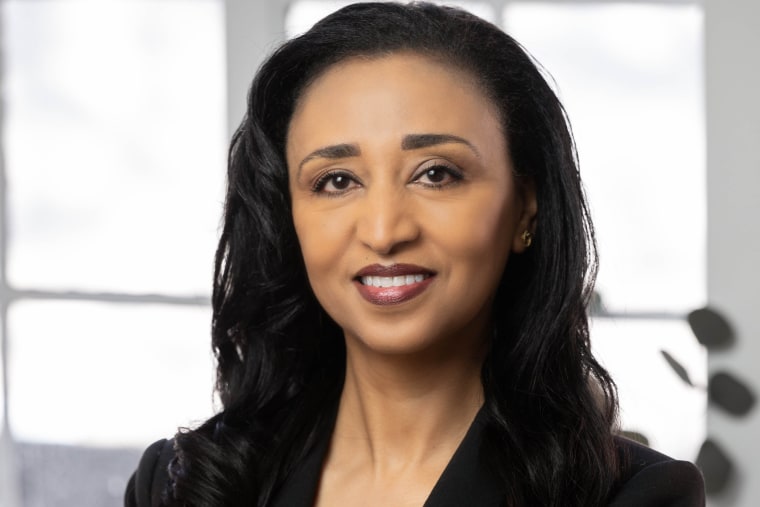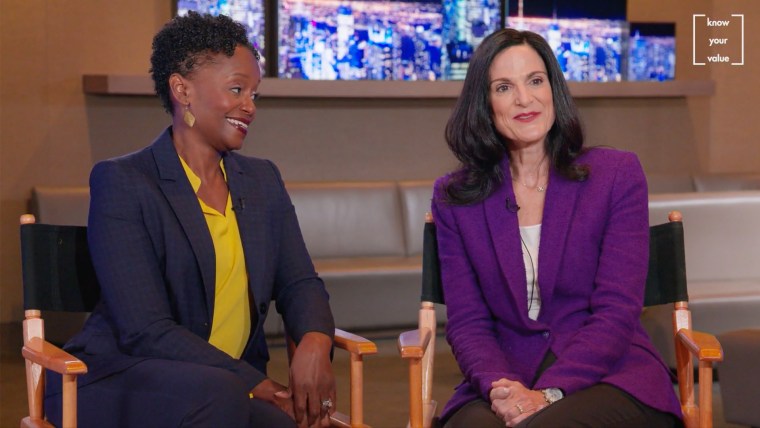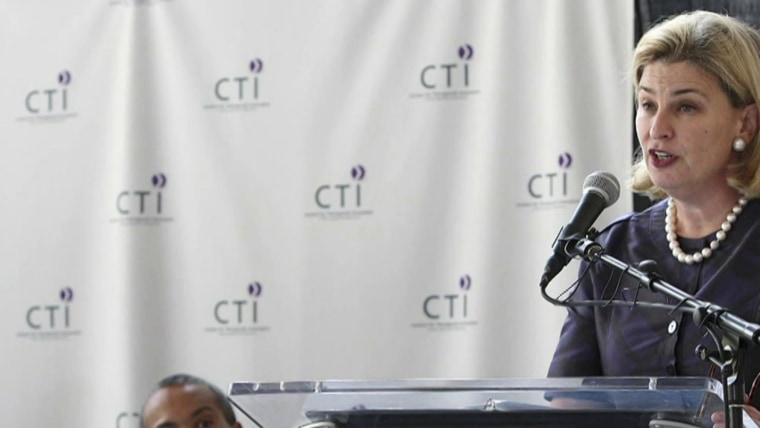In 2021, Dr. Aida Habtezion left a tenured position at Stanford to join Pfizer, a pharmaceutical company on the opposite coast from her clinic, lab and her life. Before the global pandemic, Dr. Habtezion had already reached incredible heights in her career. She was a practicing physician-scientist and a tenured, endowed full professor at Stanford University's School of Medicine.
There, she led a large translational research lab funded by multiple federal grants, had a lengthy list of scientific board memberships, and was the president of the American Pancreas Association for her specialty in gastroenterology and hepatology. It seemed as though her calling had been realized and recognized.
That is until Covid-19 arrived. Today, she is senior vice president, chief medical officer, and head of worldwide medical and safety at Pfizer. Dr. Habtezion’s organization is responsible for evaluating and communicating the correct information to patients, healthcare providers and regulatory agencies about the safety, benefits and risks of Pfizer's medications.
Dr. Habtezion sat down with “Morning Joe” co-host and Know Your Value founder Mika Brzezinski for a new episode of her podcast, “Mika Straight Up,” where she shared the pivotal moment that inspired her to leave her tenured position and join the pharmaceutical industry at a time when the world was grappling with unprecedented mortality and worsening health disparities.
“It wasn't something that I was expecting, and I tend to think and plan. I really needed to become courageous,” Dr. Habtezion told Brzezinski about Pfizer approaching her for the position in 2020. “I focused on the impact that I would have beyond what I was doing.”
She was most attracted to the company’s purpose – Breakthroughs that Change Patients’ Lives - and core values: Courage, Excellence, Equity and Joy. “As a physician-scientist, I always think about patients. I always think of the unmet need, all of the things that patients struggle with.”
Closing the gender gap in global health leadership
According to the World Health Organization, women are almost 70 percent of the global healthcare workforce but it is estimated they hold only 25 percent of senior roles.
Dr. Habtezion shared some of the systemic barriers – both direct and indirect – that impact women climbing the career ladder in the healthcare field. “In many cultures and societies women are caregivers and caretakers, of aging parents or others [and] sometimes it's difficult,” she said. “For example, in medical training there are more women than men, yet we are losing women on the ladder upwards - at times when other responsibilities come into play.” Dr. Habtezion also notes that women tend to be promoted for performance, rather than potential, and that they advocate more for others than they do for themselves.
Her advice to young women coming up in the field is to take on a variety of experiences as a way to advance. “The advice I would give to other women is to explore, to not be afraid even, to just explore,” she said. “I think that was one of the things maybe I didn't do when I was younger. I tended to be very focused … But I think it's important to explore because that's how one can grow in leadership.”
A mentorship mindset
Dr. Habtezion has dedicated part of her career journey to paying it forward through various forms of mentorship. “I do think that we need to do more of that. I didn't learn the power of mentors and advocates early on … I didn't even know they existed until a little bit later in my training, until I got to my postdoctoral training years,” she said, noting the benefits of having male allies as well. “Many men had influenced my career, and in fact, my mentors were men who really supported and advocated for me.”
Paving the path toward health equity
But the core value that led Dr. Habtezion to take the role of Pfizer’s chief medical officer was Equity. For her, it came down to the impact of addressing global health inequities that were exacerbated by the Covid-19 pandemic.
Advancing health equity is a passion Dr. Habtezion has carried throughout her career to Pfizer. “If we can embed health equity, that means then we are embedding it into the business, and it doesn’t become a separate entity,” she told Brzezinski.
In order to embed health equity at Pfizer, her team launched Pfizer’s Institute of Translational Equitable Medicine, which was founded to achieve health equity by preventing, treating, and identifying disease drivers that disproportionately impact underserved and minority populations nationally and globally. The first project to come out of the institute was a “heatmap” of disparities across diseases that became a “North Star” for the Institute.
“[We said] Let’s look at Pfizer's pipeline … what are the disease areas for which we have expertise, for which we are developing therapies, for which we are bringing breakthroughs?” she explained. “We looked at what the literature could tell us, where the disparities are.”
Her team reviewed the 38 diseases addressed in Pfizer’s pipeline - where they could concentrate on identifying disparities and improving equitable outcomes. “It may be very clear to those in the field – but it may not be widely clear in the healthcare system, those practicing public health, policy or even medicine.”
Dr. Habtezion feels fortunate for her experiences in both academia and industry, and mainly for the opportunity to give back to young scientists and physicians, “I like to teach, and I think the reason why is that I am never satisfied with my own answers. I also think the people you teach, end up teaching you a lot.”




